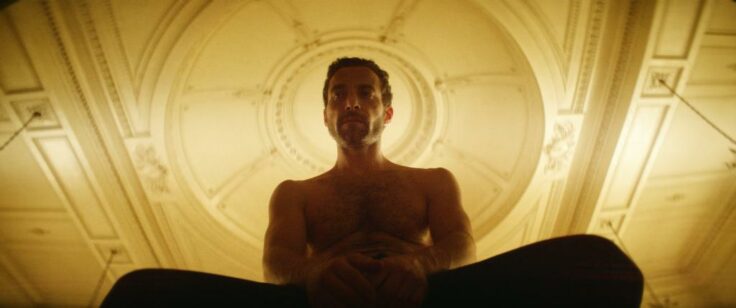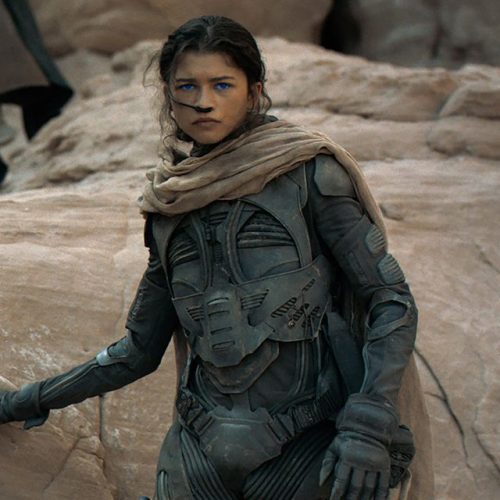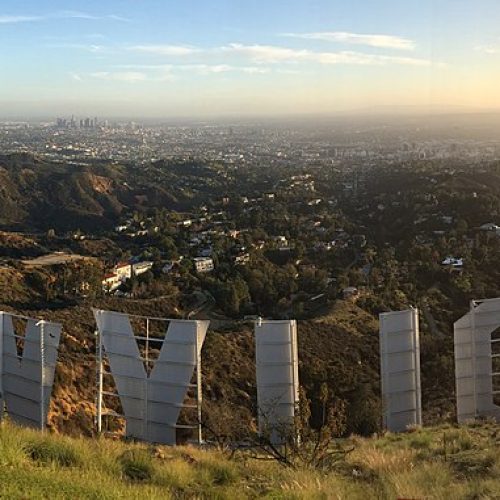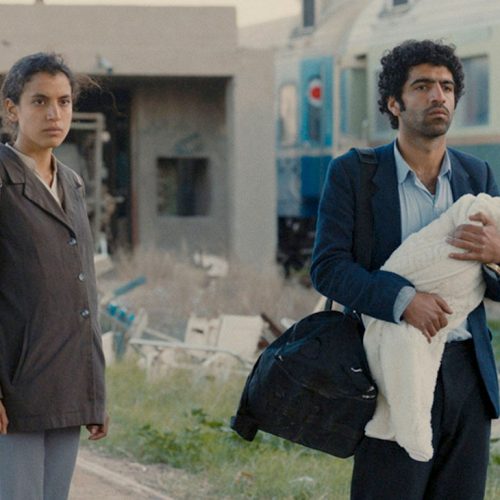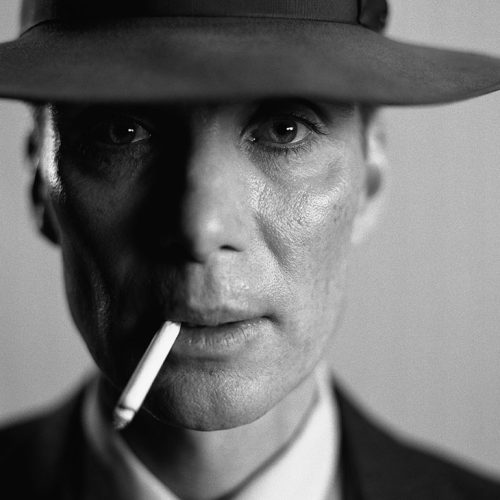It’s a usual grey afternoon in London town, the city from which I am receiving a Zoom call from no other than the industry awarded actor Yahya Mahayni. Carrying his usual curls halfway through his forehead, he greeted me with a snarky yet candid smile – similar to the one we all put on when feeling liberated from a heavyweight.
You see, freedom is a central theme in Kaouther Ben Hania’s hour and forty-minute long feature film, The Man Who Sold His Skin. The movie brilliantly explores the several dimensions and layers of what it means to be free, and the extent to which desperation, agony and anxiety can lead a man.
Heavily inspired by Wim Delvoye’s human tattoo project called Tim, Ben Hania’s drama was nominated Best International Feature Film at the 93rd Academy Awards. Binding two worlds that are diametrically at the opposite of one another, the movie follows a middle-aged man, Sam Ali (played by Yahya Mayahni), go from ‘bread and water to lobster and wine’ through what some would see as an opportunity or a sacrifice of a lifetime.
Willing to do whatever it takes to follow his love interest Abeer, played by actress Dia Leane to Brussels , the film sees the young hustler Sam make the (un)fortunate encounter with an art dealer who offers to tattoo his back with the shape of a Shengen visa in exchange of receiving an authentic one in real life. Fortune turns into affliction as the film plays out, and the protagonist does not shy away from making everyone aware of his concerns and troubles.
“The character doesn’t give a damn about being an art object, as long as he can travel, have a visa and people go to watch him,” explains Mahayni. “But quickly he realises that he’s not valued for who he is, he’s eclipsed as an individual which becomes a precondition to the audience’s enjoyment of the art. He is dehumanised and subjected to a multitude and succession of misfortunes while carrying a mark of shame.” the actor continued.
Embodying what our present-day society is witnessing through the birth and blossoming of NFTs, our main protagonist is quite literally a walking piece of art, probing more than one social issue at a time. Stuck between exploitation and personal desire, the price of freedom, liberty and autonomy are put under the spotlight while deeply looking into past and present migration flows around the world.
“Although it is fiction, you do see a price in seeking refuge in other countries. Some refugees are super educated in their home country but once they move, their degrees are not recognised, their competencies are not validated. I think that exploitation happens to everyone may they be refugees or non-refugees by working hard jobs for little pay and that’s an exploitation that transcends political status”
Universal in its primary nature, the questions asked and attempted to be answered are scrutinised through the eyes of a Levantine refugee. Originally from Syria, Yayha’s immersion into the character’s torments reveals patience, empathy and understanding while unveiling a high standard of acting.
“It was done very close with the director. To begin with, the script was written so well that it allows you to understand the stakes of each scene, Sam’s character as well as how he responds to different situations and his hardships,” Mahayni says. “I used to judge the character and his decisions and that was one of my mistakes. I hope that viewers were entertained and that the audience can relate to the character on a personal level as well as his defects.”
As an Arab, to reach these skyrocketing heights in an industry that not many from the region have managed to make a name in, is quite remarkable. Being the first Tunisian movie to be nominated to the Oscars ever is an achievement that we’ll remember for a long time. Now on the world’s stage, the light casted on the region may feel unusual but is full of promise and hope for the up and coming generation of Arab talent in the cinema industry.
“It’s surreal but I think that the most precious part was watching the premiere at Venice Film Festival. I was so proud of Kaouther and what she had envisioned this whole time. And everything that happened afterwards. The film contains a wide variety of stakes and emotions that any other actor would dream of having a role like this. Actually, the recognition that this project has gotten tends to eclipse the opportunity of interpreting a role that’s this multi-layered. It wasn’t expected, again quite surreal but felt quite nice to all of it.”
Set to release for the first time in the UK on September 24th, The Man Who Sold His Skin is a concept project conveyed through a film that is surely one to not miss.





